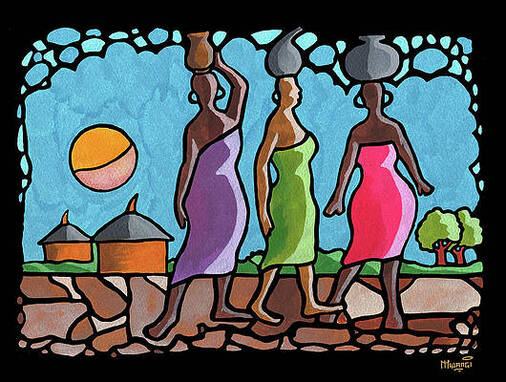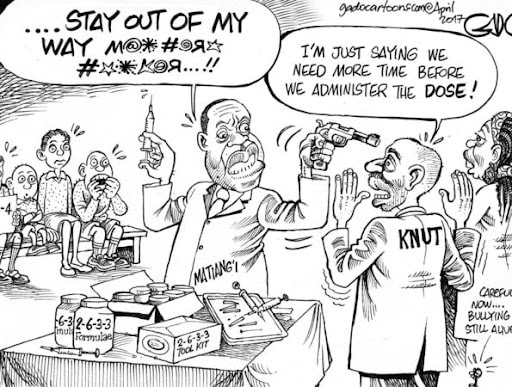 "African catwalk," painting by Anthony Mwangi
"African catwalk," painting by Anthony Mwangi
But Kenyans have courageously fought back. The vibrant public sphere and citizen mobilization have stopped insidious policies like Huduma Namba and BBI. Landmarks in jurisprudence have been achieved. Amidst these victories, both Uhuru and the civil service bureaucrats have struggled to hide their irritation that Kenyans have used the constitution to demand proper governance.






 RSS Feed
RSS Feed
